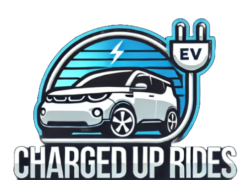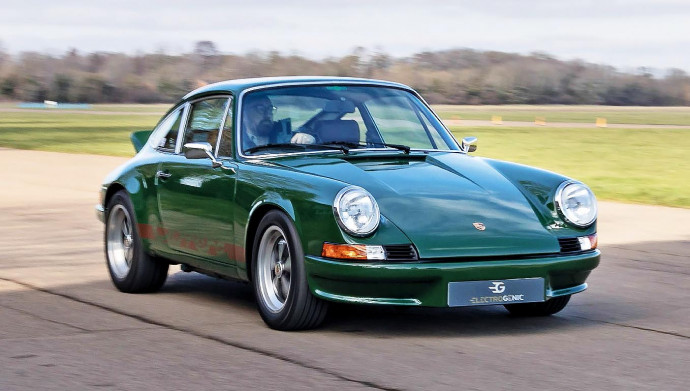Converting your classic Porsche 911 to electric power is an exciting way to breathe new life into this iconic sports car while embracing modern technology and sustainability. However, selecting the right electric powertrain is crucial to ensuring your conversion is a success. In this blog post, we’ll guide you through the key factors to consider when choosing an electric powertrain for your Porsche 911 conversion.
Understanding Electric Motor Types
When it comes to electric motors for vehicle conversions, there are primarily two types to consider: AC (Alternating Current) motors and DC (Direct Current) motors. Each type has its advantages and disadvantages, and the choice will depend on your specific goals for the conversion.
AC Motors
Advantages:
- Higher Efficiency: AC motors typically operate at higher efficiency levels, often exceeding 95%. This means they can deliver more power while consuming less energy, which is crucial for maximizing range.
- Regenerative Braking: Many AC motors can regenerate energy during braking, which helps recharge the battery and extends driving range.
- Performance: AC motors, particularly induction motors, provide excellent torque and acceleration, making them suitable for high-performance applications like the Porsche 911.
- Durability: With fewer moving parts and no brushes, AC motors tend to require less maintenance and have a longer lifespan.
Disadvantages:
- Cost: AC motors can be more expensive than their DC counterparts, both in terms of initial purchase and installation costs.
- Complexity: The integration of an AC motor often requires more sophisticated control systems, which can complicate the conversion process.
DC Motors
Advantages:
- Simplicity: DC motors are generally easier to work with and integrate into existing vehicle systems, making them a popular choice for DIY conversions.
- Cost-Effective: They are often less expensive than AC motors, which can make them appealing for budget-conscious projects.
- Torque Control: DC motors provide good torque at low speeds, which can be beneficial for city driving and stop-and-go traffic.
Disadvantages:
- Lower Efficiency: DC motors typically operate at lower efficiency levels (around 88-92%), which can affect overall range.
- Maintenance: They require more maintenance due to brush wear and the potential for overheating, especially under heavy load.
Choosing the Right Electric Motor for Your Porsche 911
When selecting an electric motor for your Porsche 911 conversion, consider the following factors:
- Performance Goals: Determine your desired performance targets, such as acceleration, top speed, and power output. This will help you choose a motor that meets your expectations.
- Battery Compatibility: Ensure that the motor is compatible with your chosen battery pack in terms of voltage and current requirements.
- Mounting and Fitment: Consider the physical dimensions and mounting points of the motor to ensure it fits seamlessly within your Porsche 911’s engine bay.
- Cooling Requirements: Evaluate the motor’s cooling needs and how they can be integrated into your vehicle’s design.
- Manufacturer Reputation: Choose a reputable manufacturer with a proven track record of producing reliable and high-quality electric motors for vehicle conversions.
Recommended Electric Powertrain Options for Porsche 911 Conversions
Several manufacturers offer electric powertrains specifically designed for Porsche 911 conversions:
- Electrogenic: Specializing in classic car conversions, Electrogenic offers conversion kits for the Porsche 911, including motors that deliver impressive performance and efficiency. Their E62 and E62s kits feature 160kW and 240kW motors respectively, with torque outputs of 3,200 Nm and 3,900 Nm. These kits are designed to be bolt-in solutions for G-body and 964 Porsche 911 models.
- Electric GT: The eGT-913 is a comprehensive conversion package designed specifically for the Porsche 911. It includes a high-performance electric motor, battery pack, and all necessary components for a seamless conversion.
- eDub Conversions: eDub Conversions offers electric powertrain solutions for Porsche 911 conversions, featuring a large Tesla drive unit capable of over 440 BHP. Their kits include a 63kWh battery pack, providing a real-world range of over 200 miles per charge.
Conclusion
Choosing the perfect electric powertrain for your Porsche 911 conversion requires careful consideration of your goals, budget, and the specific requirements of your vehicle. By understanding the differences between AC and DC motors, evaluating your performance targets, and exploring reputable manufacturers like Electrogenic, Electric GT, and eDub Conversions, you can select an electric powertrain that will breathe new life into your classic Porsche 911 while delivering exceptional performance and efficiency.
Remember, converting a Porsche 911 to electric power is not just a trend; it’s a way to preserve the spirit of this iconic sports car while embracing a more sustainable future. With the right electric powertrain, your converted Porsche 911 will provide an exhilarating driving experience that combines the best of classic design and modern electric technology.

